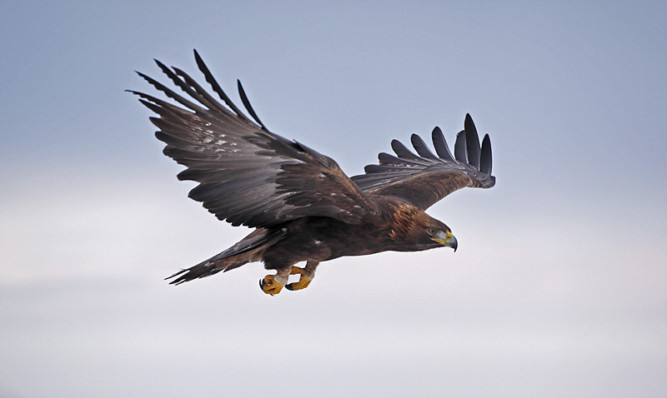People convicted of wildlife crime could be imprisoned for a year and fined £40,000 under proposals being considered by the Scottish Government.
A new report, drawn up by a review group chaired by Strathclyde University environmental law expert Professor Mark Poustie, has set out ten recommendations to cut down on wildlife crime.
As well as increases to the maximum available penalties, the report also recommends greater use of alternative penalties such as forfeiture, systematic use of impact statements in court, new sentencing guidelines and consolidation of wildlife legislation.
The report concludes that penalties for wildlife crimes have fallen behind those for other types of environmental crime and that fine levels for many of these crimes have not kept pace with inflation.
Environment minister Aileen McLeod said: “Wildlife crime poses a real risk to our natural heritage and has a detrimental effect on the people of Scotland who want to enjoy seeing Scotland’s wildlife on their doorstep, but also more widely to Scotland as a whole.
“It is vital that the available penalties are an adequate deterrent and properly reflect the impact these crimes can have on Scotland’s environment and wildlife tourism industry.
“The Scottish Government has already taken action to put an end to the illegal poisoning and killing of birds of prey, and I will continue to take whatever steps are necessary to see an end to these unacceptable activities, targeting our wildlife, which continue to take place.
“This report is one of a number of actions taken by the Scottish Government to tackle wildlife crime and ultimately provide better protection for Scotland’s environment and wildlife.
“I will carefully consider all the recommendations and will make a further announcement on how we intend to take this work forward.”
Prof Poustie said:”I consider that the group has produced a range of balanced and practical recommendations which should enhance the deterrence of penalties for wildlife crimes and I urge the minister to take forward the proposals in the report.
“I wish to thank my fellow members of the group for their extensive help in developing the report and also those who participated in the stakeholder engagement process for their contributions.”
